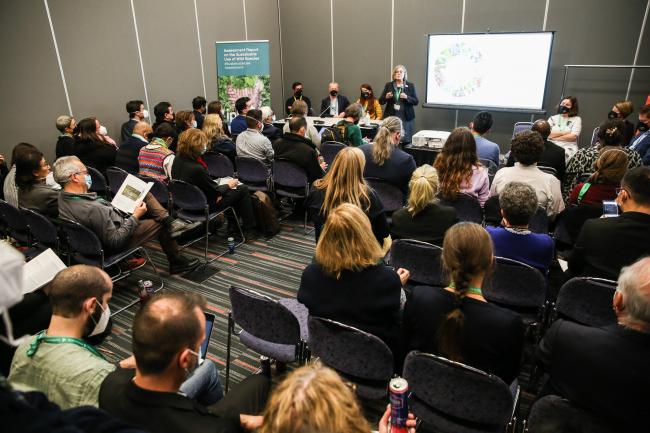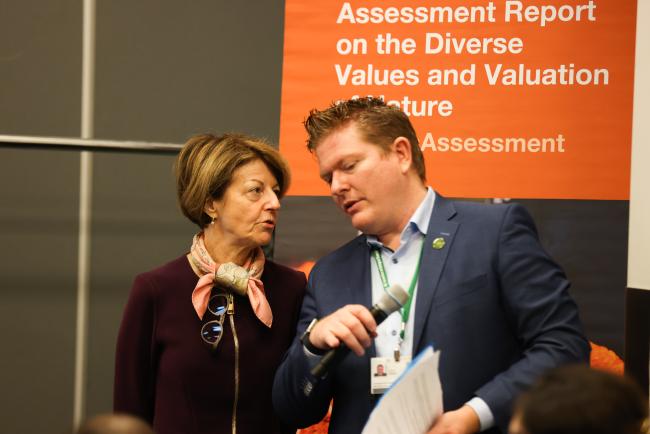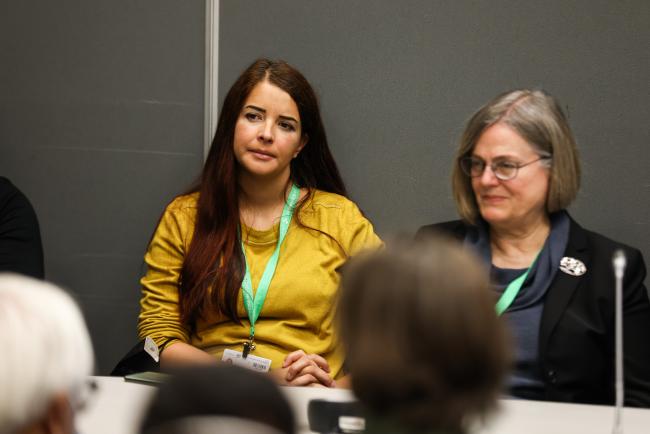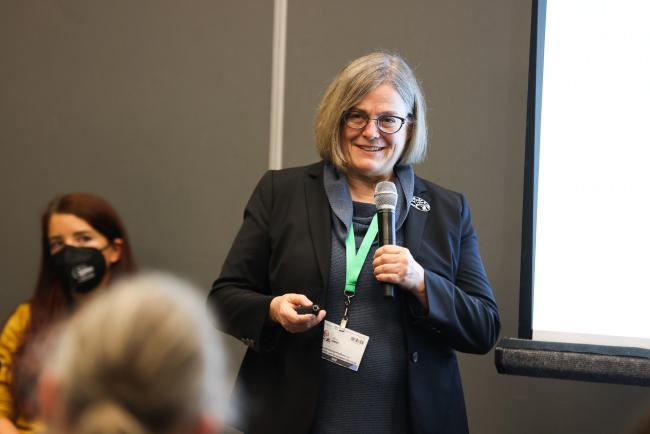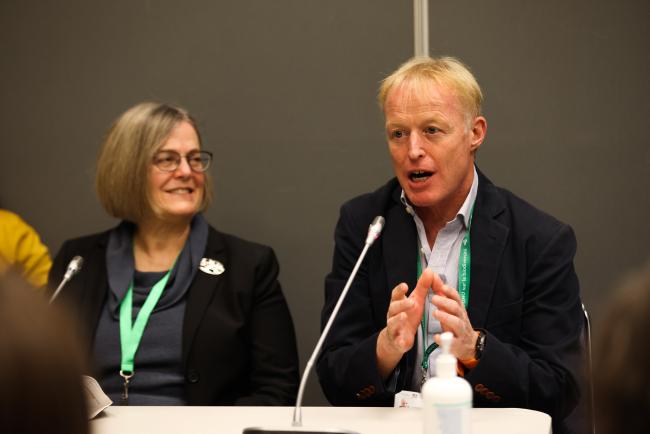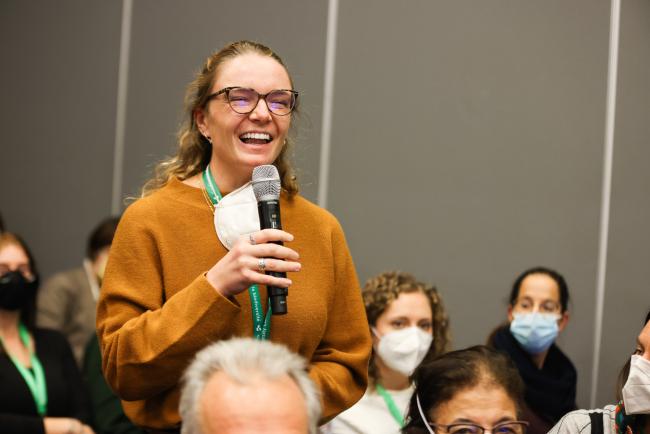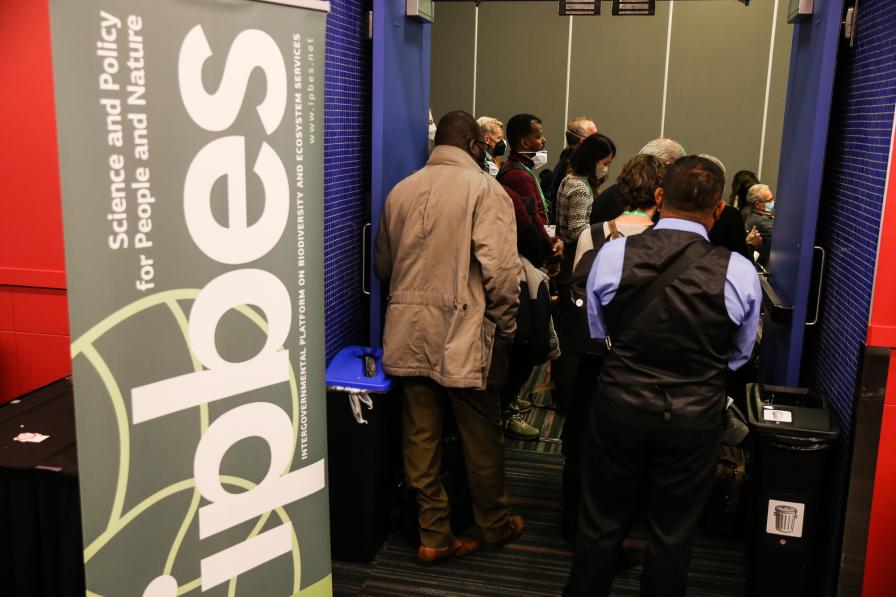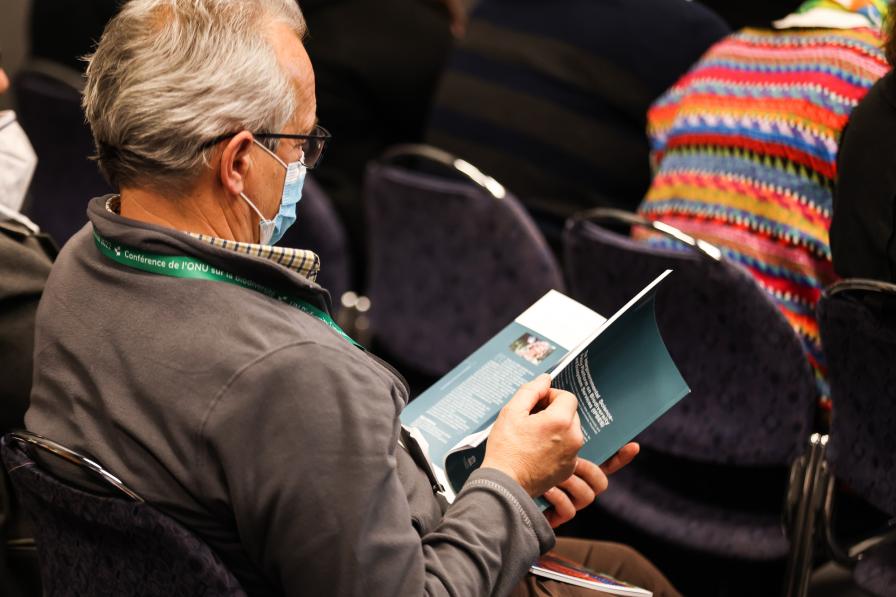About
Authors officially launched “Sustainable Use of Wild Species” and the “Diverse Values and Valuation of Nature” Assessment Reports, presenting their key findings and implications for the post-2020 Global Biodiversity Framework.
The Intergovernmental Science-Policy Platform on Biodiversity and Ecosystem Services (IPBES) Sustainable Use of Wild Species and the The Diverse Values and Valuation of Nature Assessment Reports were officially launched by the authors during a side event at the UN Biodiversity Conference in Montreal, Canada. The authors presented key findings and implications for the post-2020 global biodiversity framework. Robert Spaull, IPBES, moderated the event.
Anne Larigauderie, Executive Secretary, IPBES, noted the 10-year anniversary of IPBES and its role in establishing scientifically robust and transparent assessments of biodiversity and ecosystem services, with traditional Indigenous knowledge being a key part of the IPBES “DNA.” She mentioned that the IPBES Global Assessment and Conceptual Framework inspired the post-2020 global biodiversity framework with their emphasis on the direct and indirect drivers of biodiversity loss that require an integrated framework expressing plural values for biodiversity.
David Cooper, Deputy Executive Secretary, CBD, echoed Larigauderie, stressing that an integrated framework goes beyond protected areas to examine the underlying drivers of biodiversity loss. He noted that the Sustainable Use of Wild Species Assessment helps to “bridge the divide” between biodiversity conservation and its sustainable use for local communities.
Marie-Claire Danner, IPBES, described the Sustainable Use of Wild Species Assessment, noting it is a collaboration of more than 85 interdisciplinary experts over four years, with more than 50 countries involved and over 6200 references, including both scientific literature and Indigenous and local knowledge.
Marla Emery, IPBES, stressed the Assessment’s finding that “the use of wild species should be understood as a socio-ecological system,” underscoring that “we must look equally at the social and ecological dimensions” to encourage wild species’ sustainable use. On reversing biodiversity decline, she emphasized that overexploitation of wild species is a main threat to biodiversity and that effective management for sustainable use can restore sustainability. Indigenous Peoples and local communities’ (IPLC) stewardship of biodiversity, she said, is a core component of effective management and central to their identity and existence. She stressed “there is no silver bullet” to ensure the sustainable use of wild species as it will always depend on the socio-ecological context in which those uses occur.
David González Jiménez, IPBES, introduced the Assessment Report of the Diverse Values and the Valuation of Nature, which was approved by the 139 Member States of the IPBES in July, 2022. Michael Christie, IPBES, stressed that the causes of the global biodiversity crisis and the opportunities to address them are closely linked to the ways nature is valued in political and economic decisions. Achieving the 2050 Vision for Biodiversity, he said, depends on system-wide transformative change that incorporates diverse values of nature and is aligned with the mutually supportive goals of justice and sustainability. He underscored that achieving a transformative change to sustainability requires shifting away from short-term, market-based values that rely on individual material gains and focusing on different worldviews, knowledge systems, and values that involve the contributions of IPLCs and a “whole of society” approach.
Christie identified the IPBES values typology that characterizes different worldviews, broad and context-specific values, and respect for Indigenous and local knowledges, noting that some forms of value are non-commensurable and cannot be substituted for each other. From a review of over 50 valuation methods, he emphasized that “it is not just about what values are important, but whose values are considered” in policy, stressing that values-centered policies to advance just and sustainable outcomes require assessing and responding to power asymmetries between different values for nature.
In the ensuing discussion, participants raised, inter alia:
- the role of genetic benefits from nature, with Emery stressing that IPLCs manage 40% of all protected areas with high biodiversity and that their management and use of these lands has contributed to both biodiversity and genetic diversity;
- the need to account for the fact that a strictly economic valuation, rather than accounting for a multiplicity of values, might itself be the problem;
- the question of how to better translate multiple values to potential donors;
- the need to engage with more biocentric and less anthropogenic values; and
- the importance of bringing Indigenous worldviews and knowledge directly into the report and for Indigenous experts to be “at the table.”
Responding to a question on addressing power asymmetries in valuation, Christie stressed that deliberation is key to address incompatible values.
Ana María Hernández Salgar, IPBES Chair, closed the event, reminding participants that IPBES is independent of the UN and is based both on scientific knowledge and the guidance of governments.
Organizers: IPBES, CBD
Contact: Nadine Hoffmann | IPBES | Nadine.hoffmann@un.org
For more information: https://www.cbd.int/side-events/4317
All ENB photos are free to use with attribution. For this event, please use: Photo by IISD/ENB | Natalia Mroz
To receive free coverage of global environmental events delivered to your inbox, subscribe to the ENB Update newsletter.


